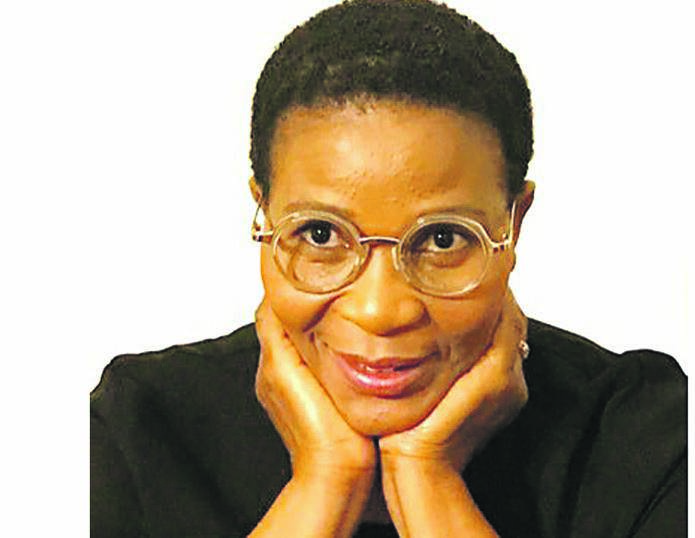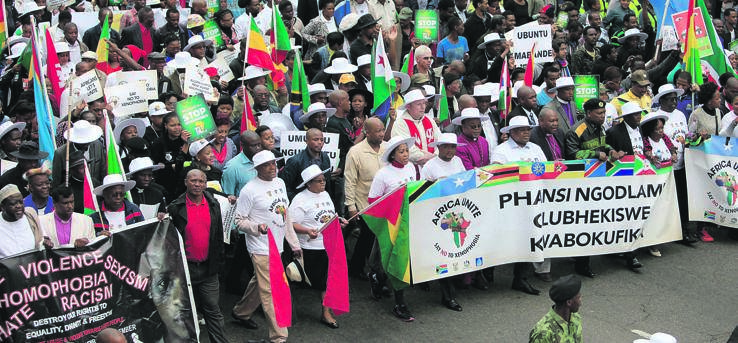
‘Illegal immigrants’ offers public figures plausible deniability, if they are accused of fuelling hatred
On October 2 1937, General Rafael Trujillo ordered the killing of Haitians who were in the Dominican Republic.
Perejil, the Spanish word for parsley, was used as a test to identify Haitians because it was well known that they pronounced this word differently from Dominicans.
The Parsley Massacre or “the cutting”, so called because of deaths by stabbing with machetes, took place mainly on the north-eastern border between Haiti and the Dominican Republic and killed a reported 30 000 Haitians and some Afro-Dominicans.
To this day, the massacre remains an intergenerational trauma.
The use of code words and verbal tests to distinguish those who should be killed is as old as history itself.
In post 1994 South Africa, we have seen the daily use of code words and verbal tests to identify immigrant Africans.
Some of these codes are increasingly institutionalised.
Police officers may stop a mini bus taxi and shout “Yitsho! [Say it!]” and, without further explanation, people will name whatever body part, to which the officer is pointing, in their mother tongue, be it ingqiniba (elbow) or ingalo (arm).
Those who know the names of these parts are deemed South Africans and those who do not are deemed foreigners who are instructed to produce their papers on the spot.
In true South African style, colourism also plays a role and dark-skinned Africans are subjected to more questions and further tests and sometimes simply deemed foreigners because of their skin colour.
In the townships and settlements, those who fail these verbal tests are routinely attacked, subjected to violence and chased out of communities, often losing their valuables, which are either vandalised or taken by the attackers.
Coded language is not limited to verbal tests. Reference to illegal immigrants is a code used by politicians, public figures like King Goodwill Zwelithini and people who for one or other reason are xenophobic.
Reference to “illegal immigrants” offers these public figures plausible deniability, in case someone accuses them of fuelling hatred against immigrants in general.
Those two words are also bywords for people who must be viewed with suspicion, who are said to be taking jobs from South Africans or who run small businesses which, it is said, should belong to black South Africans.
These are people who are depicted as a burden on the South African health system and infrastructure.
Illegal immigrants are found in specific areas, like the inner cities of major metros; and small towns, especially in former Bantustans; as well as villages and townships where they are said, by those who make these pronouncements, to have taken over the corner shop business, the village shops.
During this election season, politicians have used immigrants as scapegoats and to mislead people about the real reasons behind the squalid conditions in which they live, high levels of unemployment and failure to provide basic services, including healthcare.
Addressing a rally in March, President Cyril Ramaphosa said: “Everybody just arrives and sets up businesses in our townships and rural areas without licences and permits.”
He added, “we are going to bring this to an end”.
A closer look reveals that the changing patterns in small shops in the villages and townships are more complex than politicians would have us believe.
Apartheid spatial design played a major role in the township and village shop business.
Township and village residents mostly bought from local shops because these places were designed to contain black people.
Irrespective of size, the village shop fulfilled every need of the communities, from birth to death, education, rites of passage, marriage and everything in between.
The success of these shops has always depended on a number of factors, such as a networked business model and membership.
The most popular scheme in the 1970s and 1980s was Lucky Seven.
This scheme gave a line of credit to members through which they financed a number of business facilities, such as the purchase of bakkies, exclusive stock prices and other support mechanisms.
With changing conditions in South Africa, the village shop and corner shop also changed and so have the business models.
The market which was covered by village and township shops found space in town, with family-owned supermarkets gradually giving way to chain stores.
The ubiquitous chain store Boxer, which is found near the taxi rank in almost every town, small, medium or large, is a good example.
Generational factors have also influenced some of the changes. The first thing parents did was to educate their offspring and encouraged them to move beyond the village, small town or Bantustan.
They are now mostly working in professions of their choice. Those who do not have academic skills, have joined throngs of people who are looking for work there.
Despite these changes, villagers still need local shops where they have a line of credit for small goods. This need is fulfilled by spaza shops.
Contrary to Ramaphosa’s claim, immigrants who trade in these spaces now do not just arrive overnight.
Most of these shops are rented from previous owners who could no longer afford to run their businesses for a number of reasons, which have absolutely nothing to do with immigrants, as outlined above.
If Ramaphosa looks closer to home, in the ANC he will find fascinating stories of families, such as the Dadoos and Mbekis, who survived because of the small shop.
These stories are not told simply for the sake of it; they help us understand the history and economy of this country, its structure then, its structure now and hopefully how we can build for the future.
According to Stats SA, immigrants, documented or undocumented, comprise 5% of the population.
This has not stopped politicians from making wild claims which are easily proven to be false.
Speaking at a Nurses Summit hosted by workers’ union Nehawu, Minister of Health Aaron Motsoaledi repeated false claims about immigrants who were burdening the health system.
“Our hospitals are full, we can’t control them. When a woman is pregnant and about to deliver a baby, you can’t turn her away… Overcrowding in neonatal wards has been blamed for the deaths of a number of babies who are exposed to infections in hospitals.”
His statement about the causes of neonatal deaths is not true. South Africans will recall investigations following large numbers of neonatal deaths in hospitals, which pointed to negligence, equipment failure and lack of care in neonatal wards.
The DA’s Mmusi Maimane has blamed “illegal immigrants” for the lack of jobs and for crime.
“The biggest challenge is that people don’t have work here. The other issue that is becoming problematic is that our citizens don’t feel safe.”
Had the DA taken the trouble to consult current research, they would have found that there was no basis for this claim.
Immigrants who are entrepreneurs employ South Africans as factory workers, cleaners and so on.
The immigrant bogeyman, is a well-tested ploy of politicians. In the US, Donald Trump won the 2016 elections in no small measure because of his anti-immigrant rhetoric and campaign of fear.
Globally, politicians use this strategy in exchange for electoral fortunes.
In South Africa, this kind of dog whistling leads to periodic attacks against immigrants, abuse of immigrant women, and looting and vandalising of their properties.
Despite condemnation of the attacks in March and April, as in the previous attacks, the president and government have done nothing to bring those responsible to book.
This kind of inaction sends a direct message that government does not take the attacks seriously or, at worst, they approve of violence against immigrants.
Until Ramaphosa acknowledges that government, not immigrants, bears the responsibility for that which they blame on illegal immigrants, his dog whistling is a version of what Trujillo did.
Gasa is adjunct professor of public law at University of Cape and a researcher on land, gender, politics and cultural issues
TALK TO US
Have you experienced xenophobia and how did you deal with it?
SMS us on 35697 using the keyword IMMIGRANT and tell us what you think. Include your name and province. SMSes cost R1.50. By participating, you agree to receive occasional marketing material




 Publications
Publications
 Partners
Partners









